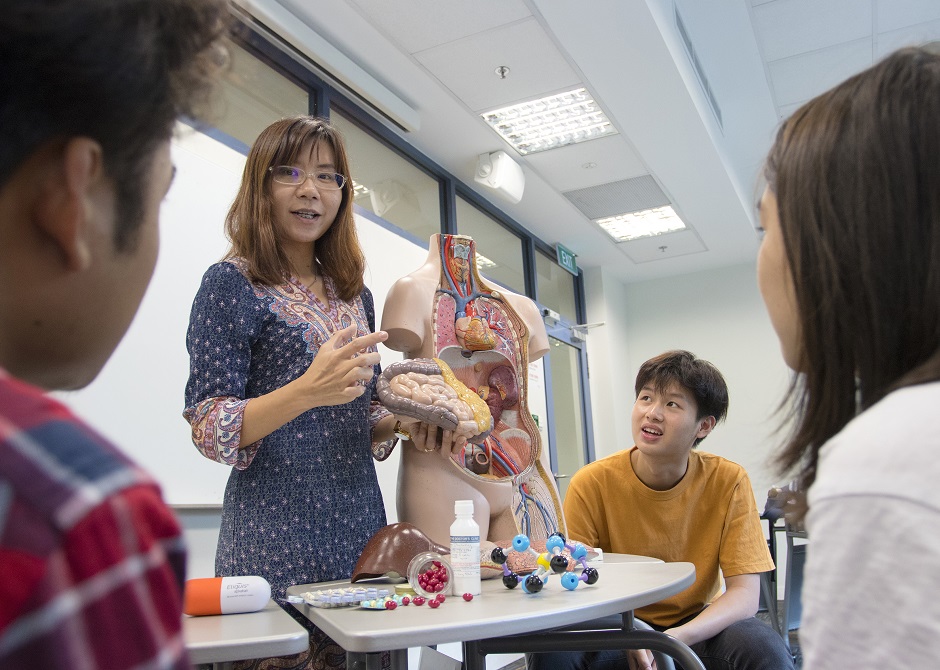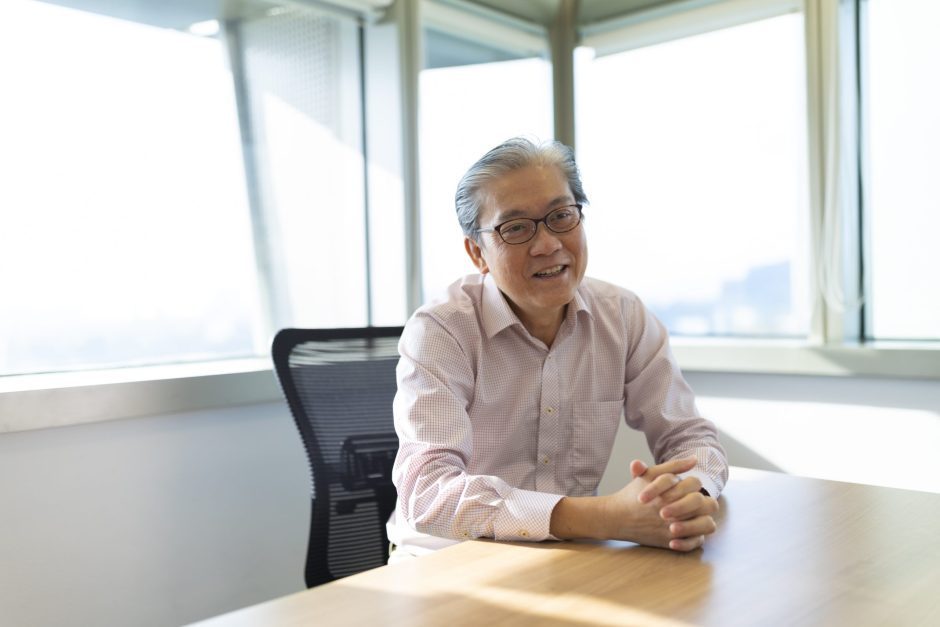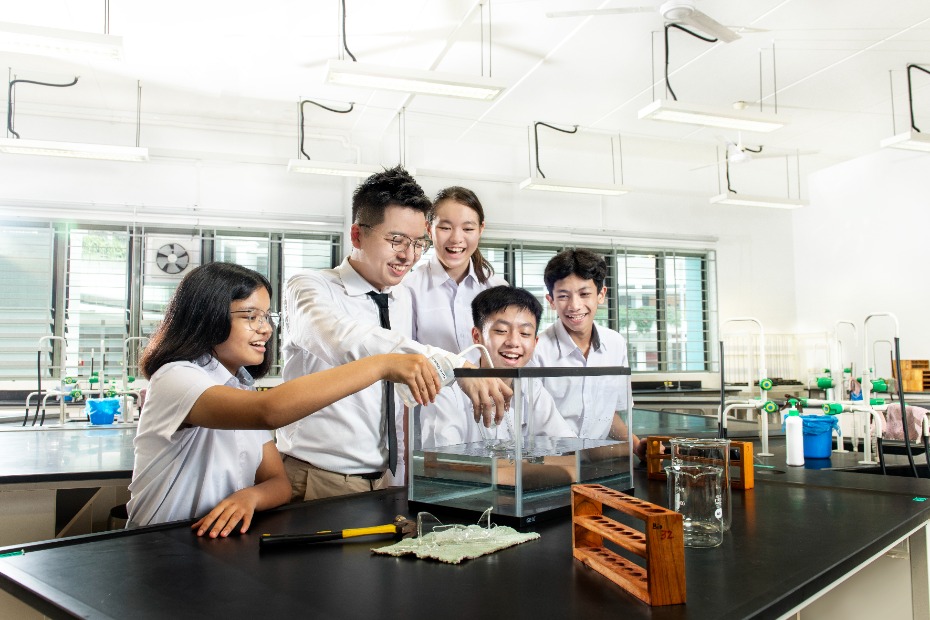Ms Tan Lay Khee, Temasek Polytechnic, President’s Award for Teachers 2018 Recipient
As a pharmacist by training, Ms Tan Lay Khee knows the ins and outs of the trade. She understands that the most important skill for the job is not about having all the facts at one’s fingertips.
The true secret is being able to speak to people. Only by being able to ask the right questions to find out the condition of a patient, can one come to a sound decision about the medication to recommend.
Her time as an undergraduate prepared her well for this, through role-play with coursemates.
But when it came to teaching the same thing at Temasek Polytechnic years later, Lay Khee was less certain. The Manager (Academic Development) had strong reservations about introducing it as a form of assessment for her students, as it could prove more stressful a test than even a written exam.
“I decided to give it a try. But knowing there would be challenges, I thought about how to get buy-in from the students,” she says.
“When I introduced it, I explained that it would not be easy, but it was essential. It is not sufficient if they remember the facts and excel in a pen and paper exercise. They must be able to communicate, process, and decide.”
To ease them into the transition, she gave students ample opportunities to practise with one another, and recorded those sessions on video. “They found it very useful,” she says. For instance, several did not realise they were committing fundamental errors like not making eye contact, until they saw themselves. “This helped them identify their strengths and weaknesses,” Lay Khee explains.
Even then, she found that students regularly came to her after a role-play session to ask how they fared. She wondered why they were not aware of the quality of their performances, and felt they could become overly reliant on her.
So she introduced self-assessment. She told her how they would be marked: what actions would score points and how many; how the content of their interventions would be judged.
She herself would demonstrate how to do this assessment by inviting a volunteer to role-play with her in front of the whole class, then dissecting the volunteer’s performance.
It took some time for her students to get used to this. “Sometimes they thought they didn’t do well because they were nervous. When that happened, I gave my own assessment, highlighting what they did well such as maintaining eye contact.”
When they pick up the skill and can tell her what they have done right or failed to do, she feels fulfilled.
Keeping it real
Lay Khee has also livened up her classes through Problem-Based Learning. After learning about this pedagogy in a course, she applied it to her Introduction to Pharmacotherapeutics and Pharmaceutical Microbiology subjects. She was the first in her former department to do so.
She took authentic cases and repackaged them for students to research and discuss. As with the role-play, she deliberately leaves out information in the original case scenarios to train her students to look out for information gaps and ask relevant questions to fill these gaps.
“I need to be sharp enough to see whether my students are getting relevant information, and are understanding it. To know the treatment, they need to know what is wrong with the body’s system. For example, they need to know that the watery stool in diarrhoea is caused by the big intestine not performing its job of reabsorbing water,” she points out.
This approach makes her classes stimulating and enlightening for her students. One of them says, “In her lectures, it was not like I’m studying, it was like I’m learning. I want to learn more.”
Teaching lifelong learners
Lay Khee also conducts evening classes for the Specialist Diploma in Biopharmaceutical Technology. Her adult students are either people from industry who are seeking to upgrade their skills, or others who have no background but are exploring a career switch to the biopharmaceutical industry.
To cater to both audiences, she first spends time explaining the fundamentals to the newcomers, at the expense of boring the knowledgeable ones. Then, she rewards the latter by engaging them in problem solving. At this stage, the struggling newcomers gratefully receive impromptu tutorials from their more experienced classmates.
In her evening classes, there are usually latecomers. Again, she has to strike a balance — between penalising those who are punctual and doing right by those who cannot make it on time for valid reasons, such as work commitments.
So she starts her lectures on schedule, and puts up course material on the web for the latecomers to read on their own. She also stays back after class to entertain queries about what they missed or do not understand.
Lay Khee has just finalised a report on research she has been conducting into students’ self-assessment across various disciplines at Temasek Polytechnic. Funded by the MOE Tertiary Education Research Fund, she is proposing a framework for self-assessment that she hopes can be shared with other polytechnics.
Her strategies to enhance her teaching are set to extend far beyond her classroom.
“She is so thorough. When we ask questions, she knows the answers like the back of her hand. Wow, she knows so much. That’s what I like about Miss Tan.” – Nikhil Tarun, Year 3, School of Applied Science, Diploma of Pharmaceutical Science





.jpg)
